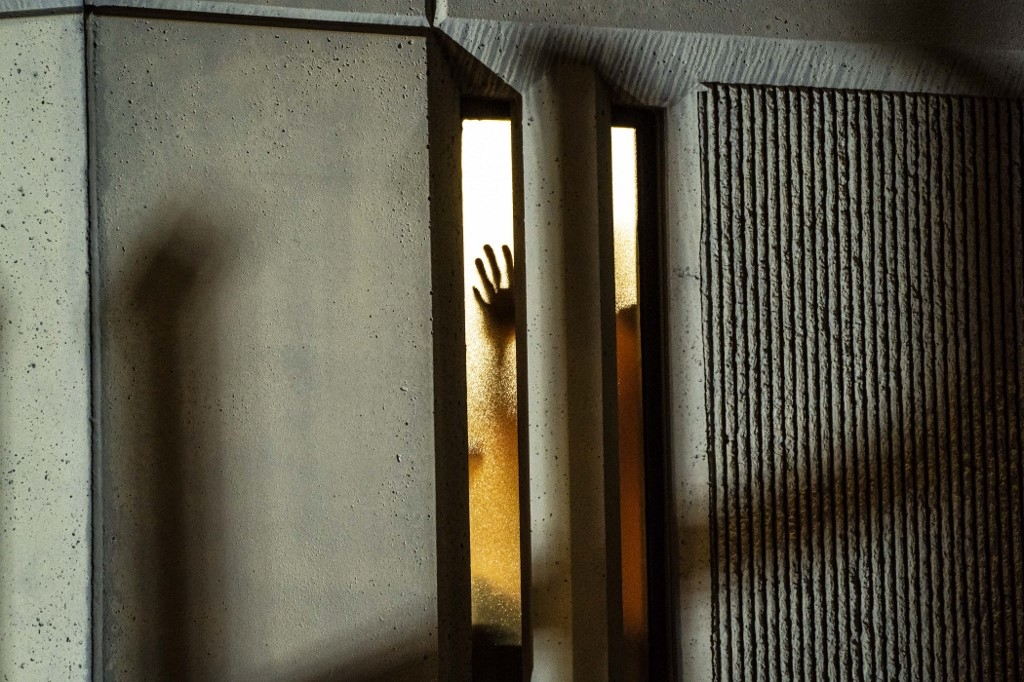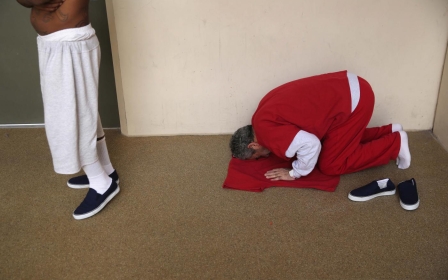Muslim group sues US state for not allowing imam into execution chamber

An American Muslim civil rights group filed a federal lawsuit on behalf of an imam who was denied the right to accompany a Muslim death row inmate during his execution two years ago.
The Council on American-Islamic Relations (CAIR) announced on Thursday that it filed a lawsuit in the US District Court for the Southern District of Alabama asking for a policy to allow imams to accompany death row inmates at their executions.
The lawsuit comes two years after Imam Yousef Maisonet, a Muslim religious leader in Alabama, requested to be at the side of death row inmate Domineque Hakim Ray - who was sentenced to death for the 1995 rape and murder of a 15-year-old girl.
At the time, Maisonet was denied by prison officials because he was not an employee of the correctional facility. Instead, the Department of Corrections said they would provide a Christian prison chaplain to be present.
"The chaplain told me, 'Well, I'm gonna be in the chamber'. I told him, 'Well look, he's not a Christian, he's Muslim and I should be the one that should be in there'," Maisonet said during a news conference held on Thursday.
New MEE newsletter: Jerusalem Dispatch
Sign up to get the latest insights and analysis on Israel-Palestine, alongside Turkey Unpacked and other MEE newsletters
'We are hopeful that the state of Alabama will either come to its senses, or a federal court will intervene to move beyond these exclusions of religious leaders'
- Gadeir Abbas, CAIR Senior Litigation Attorney
Maisonet continued to challenge the prison, and a federal appeals court granted Ray a stay of execution to determine whether the prison had violated the first amendment of the US Constitution by favouring one religion over another.
Despite this, the Supreme Court ruled in favour of going forward with the execution without the presence of any religious figure - Christian or Muslim - and Maisonet watched Ray's execution from a separate room.
"I was able to observe the execution, but it was hard to see a Muslim die with the state of Alabama denying him his rights, to die with his religious beliefs," Maisonet said.
The denial of allowing an imam to be at Ray's side during the execution caused outrage both domestically and internationally.
In federal prisons, unlike state facilities, inmates on death row are allowed access to faith leaders from the religion they practice, and those individuals are allowed access to the inmates all the way up to the execution, Gadeir Abbas, senior litigation attorney at CAIR, noted during a news conference on Thursday.
Abbas said the case was "about the religious liberty of imams to carry out their religious beliefs and tending to those that society has decided to kill".
"That's what this lawsuit is about, and we are hopeful that the state of Alabama will either come to its senses, or a federal court will intervene to move beyond these exclusions of religious leaders."
Middle East Eye delivers independent and unrivalled coverage and analysis of the Middle East, North Africa and beyond. To learn more about republishing this content and the associated fees, please fill out this form. More about MEE can be found here.




